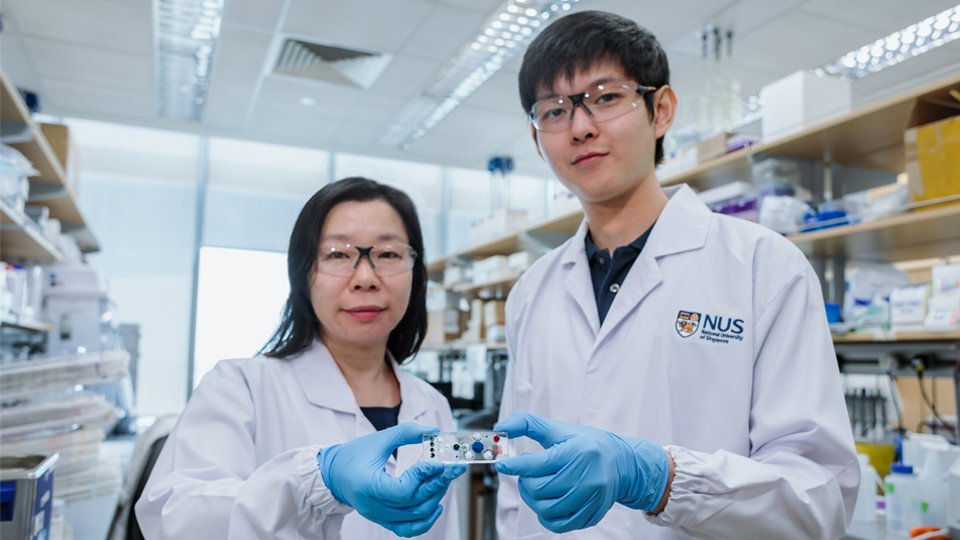NUS makes biopsies less invasive and more informative
11 September 2019 | News
A novel technology that could sensitively and accurately detect and classify cancer cells

A team of researchers at the National University of Singapore has developed a novel technology that could sensitively and accurately detect and classify cancer cells, as well as determine the disease aggressiveness from the least invasive biopsies.
With this new technology called STAMP (Sequence-Topology Assembly for Multiplexed Profiling), comprehensive disease information can be obtained faster, at a much earlier stage of the clinical workflow, allowing doctors to decide and administer treatments earlier and more effectively.
A biopsy, which involves removing a small amount of tissue from the body, is the main way for doctors to diagnose most cancers. While less invasive biopsy procedures are preferred, they can yield insufficient samples, resulting in incomplete and/or inconclusive diagnosis. A definitive diagnosis and further analysis such as cancer staging can only be made post-surgery; this long-waited information is then used to guide subsequent treatment decisions.
The STAMP technology overcomes many challenges of this clinical workflow to enable early and informative cancer diagnostics. STAMP uses programmable DNA barcodes to measure billions of protein markers in a single test – the amount as well as the distribution of these protein markers in a cell – from a small clinical sample. Using breast cancer as a model, STAMP achieves a high diagnostic accuracy of above 94 per cent, comparable with gold-standard tissue pathology, and reveals important clinical information which currently can only be obtained through post-surgery tissue analysis – all directly from a fine needle aspiration (FNA) biopsy, the least invasive form of biopsy.
Led by Assistant Professor Shao Huilin from the NUS Institute for Health Innovation & Technology (NUS iHealthtech), the 10-member research team spent over two years to develop STAMP.
A provisional patent has been filed for STAMP. Asst Prof Shao and her team are currently in discussions with industry partners to further develop and commercialise this technology. The technology is expected to reach the market within the next five years.












